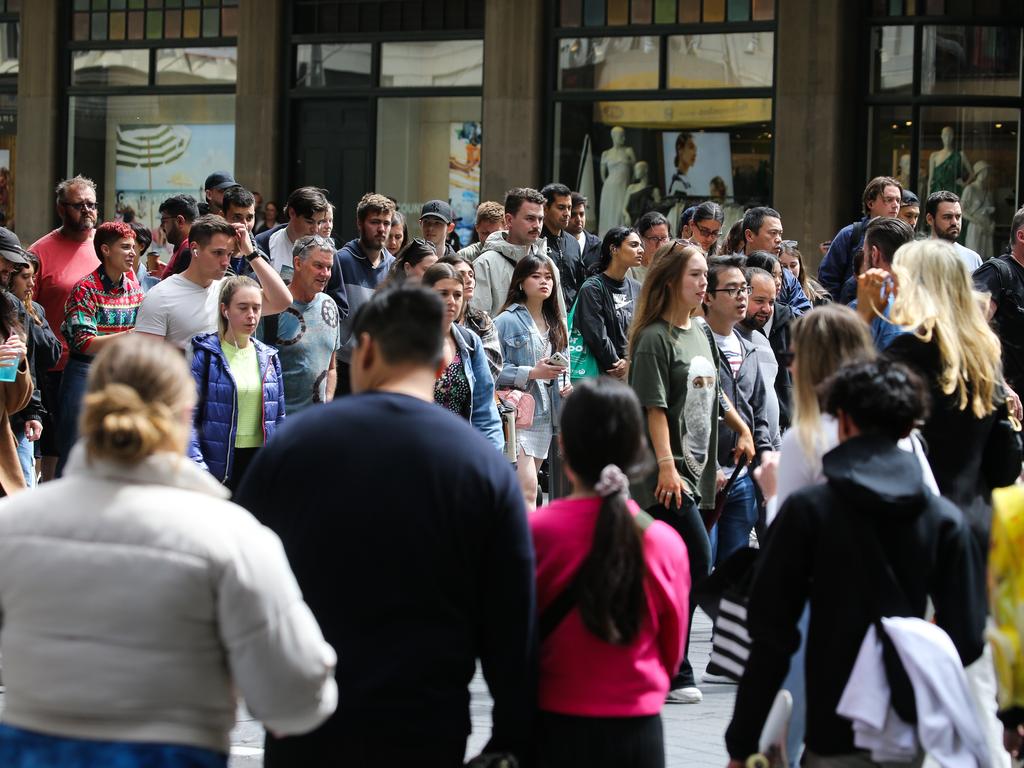No better time for us to embrace overseas students

International students are often portrayed as wealthy and taking homes from Australians. The reality is different. For many, the journey to our shores requires the combined sacrifice of an entire family. At Western Sydney University, we see this truth every day.
Many of our international students from countries such as Nepal, Vietnam and India are doing it tough. They are balancing studies, part-time work and loneliness, all in the hope of improving their future.
They are also hit by cost-ofliving pressures. Many are going hungry. International students are frequent users of our university’s Food Pantry initiative, which provides free access to fresh and healthy produce and pantry staples: tuna, rice, milk, bread and vegetables are in high demand.
International students are contributors. At WSU, 24c in every dollar of international student revenue is reinvested in activities that support our Australian students. Without this, Australian students would not have the same quality of education. This support is especially vital to keep students from poorer backgrounds in study through food, equity and other programs. International students are enabling education to remain accessible and inclusive for Australians.
Another misconception is that international students should be equated with immigrants. They are not. International students are temporary entrants for a specific purpose – education. They stay for a longer period than some other temporary entrants, such as tourists, but the principle is the same. International students must leave the country at the end of their education unless we permit them to stay. Those who return home can leave with goodwill towards Australia that pays long-term dividends for our nation as they become leaders in government and business.
International students enrich our campus, communities and economy. They fill critical workforce gaps in sectors like healthcare, technology, and hospitality. The work they do is so vital that the Australian government permits some to stay on after they have finished their studies. This is particularly true in a field like nursing where, in 2023, most of WSU’s 1350 international students went to work in western Sydney, helping to address a shortage of about 10,000 nurses.
International students also keep our economy going. They take up jobs, such as stacking shelves at supermarkets and working in aged care, that fewer Australian students apply for. They can also provide a direct economic benefit to struggling Australian families. Many of our international students live with local families through a homestay program. This provides around $400 a week to help with mortgage and other cost-of-living pressures. The family provides a safe and caring environment.
Western Sydney like other regions faces a critical shortage of affordable housing but international students do not make this problem worse. Our students are not coming to Sydney and purchasing $1.8m homes in places like Parramatta. They live in student accommodation, homestays, share houses or board with friends. At WSU, we have a bed for every international student, with 25 per cent free capacity.
There are always areas in need of improvement but international student caps are undermining the contribution they make in western Sydney, the nation’s third-largest and one of our fastest-growing economies. Without them, local businesses could go under, and the region could miss out on the skills needed to power up growth. We need international students to fill key skills gaps in key areas such as health and as a result of massive infrastructure development such as the Western Sydney Airport.
All up, international education contributes some $50bn to the nation a year and is a vital contributor to other industries, including tourism and hospitality. As other countries like the US turn away international students, there has never been a better time for Australia to embrace international students and the benefits they bring to our community.
We should be welcoming and indeed feel privileged that these students are choosing Australia as a place to study.
Professor George Williams AO is vice-chancellor and president of Western Sydney University. He will speak at the EDUtech conference in Sydney on Thursday.






With the dust having settled on the 2025 election, now is the time to rethink policy on international students. The Coalition has signalled its willingness to reconsider, with education spokesman Jonathon Duniam committing to a “more sensitive approach” involving consultation and recognition that international student caps are a “blunt instrument” for dealing with housing. This provides an opening for the government, and an opportunity to move past a debate riddled with misconceptions.